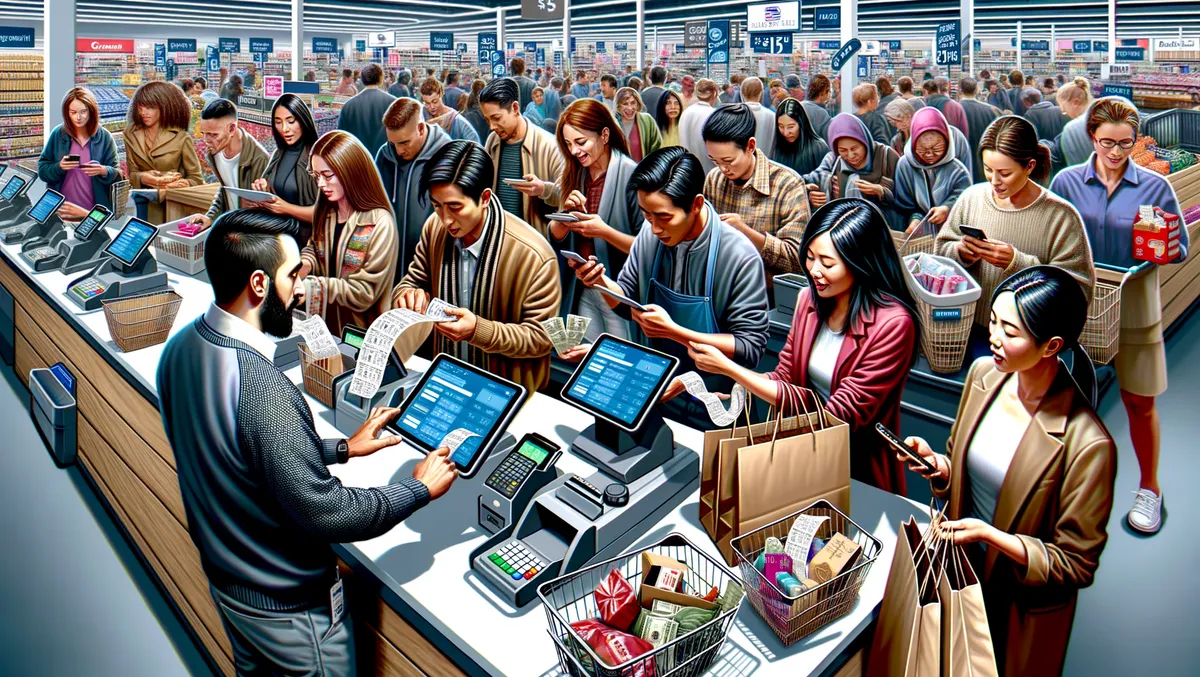
Slyp reveals environmental impact of paper receipts on Black Friday
This Black Friday, Australia's rapidly growing digital receipt firm, Slyp (supported by the country's big four banks), has unveiled a ground-breaking research report. The document discloses the detrimental environmental implications of paper receipts and the health risks they pose due to the thermal receipt paper used in their creation. The report has come to light on the busiest retail day of the year when the number of transactions processed reaches its annual peak.
The research, named 'The Life Journey of an Average Receipt' and supported by the Minister for Environment & Water, Tanya Plibersek, was carried out by the University of Technology Sydney at the request of Slyp. The findings highlight that over 10.6 billion paper receipts are printed in Australia annually. The environmental impact of printing these receipts equates to producing 96,227 metric tonnes of carbon (comparable to 20,918 cars on our roads) or generating 104,747,775 KW of energy (enough to power 18,500 New South Wales homes for a year).
Furthermore, a significant number of paper receipts are coated in BPA, rendering them up to 1,000 times more toxic than BPA exposure from a standard plastic bottle. Due to these alarming results, Slyp has initiated a new consortium of industry pioneers named FutureProof. The group aims to revolutionise the means by which Australians receive and handle their receipts.
Backers of the FutureProof initiative encompass a range of companies and industry associations, including Amazon Web Services, Google, NAB, Visa, Woolworths, Salesforce, Chemist Warehouse, Australian Retailers Association, and Consumers' Federation of Australia.
The investigation also contrasted the environmental footprint of printed paper receipts to digital alternatives. It revealed a disparity in the consumption of natural resources, with no trees felled or water used in creating digital receipts. Moreover, the energy used and carbon generated by digital receipts amounted to only 7.192,800 KW and 3,037 tonnes, respectively - a fraction of the environmental toll exacted by their paper equivalents.
The report suggests Australia should consider a hybrid receipting model, combining both paper and digital methods, thus allowing consumers to make a choice. Furthermore, in October 2023, a coalition of organisations, including retailers, tech companies, financial institutions, and industry associations, met to discuss how FutureProof could aid in changing the interpretation and usage of receipts in Australia.
Subsequently, FutureProof aims to reduce the impact of non-recyclable thermal paper receipts and bolster access to digital substitutes. Paul Weingarth, CEO of Slyp, was among the attendees at the inaugural FutureProof meeting. He emphasised the significance of the industry unifying to advocate pivotal changes. Weingarth remarked that FutureProof serves as an excellent example of national cooperation towards achieving progressive, environmentally friendly transformations.
Also supporting the initiative, Alex Holt, Woolworths Group Chief Sustainability Officer, stated, "Sustainability is all about collective action towards a better tomorrow, and this initiative really exemplifies that. We're excited to be coming together with other businesses through FutureProof to help drive the adoption of eReceipts across industry." He added that since the launch of digital receipts in 2021, over 1.6 million Woolworths customers have embraced the technology, saving an average of 13 metres of paper each per year.


